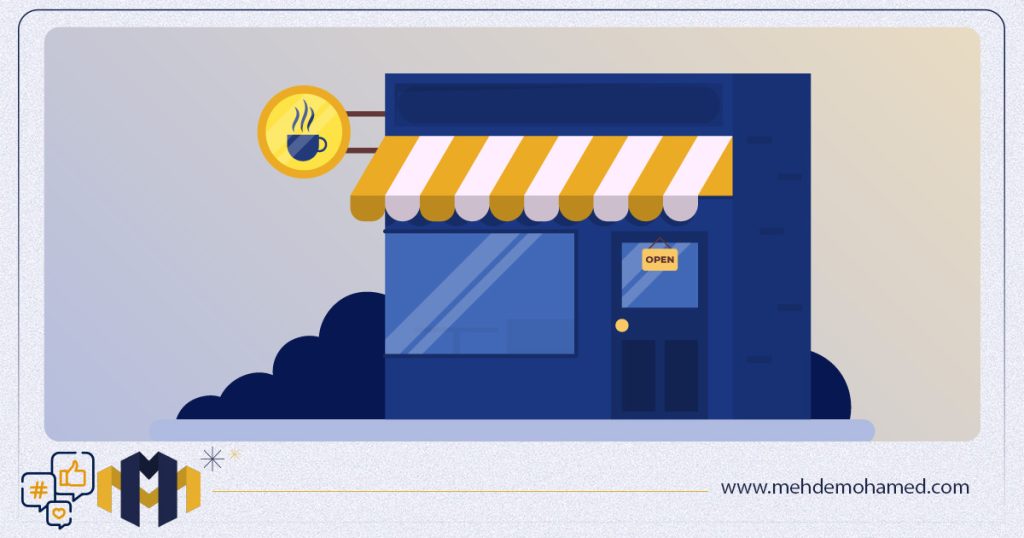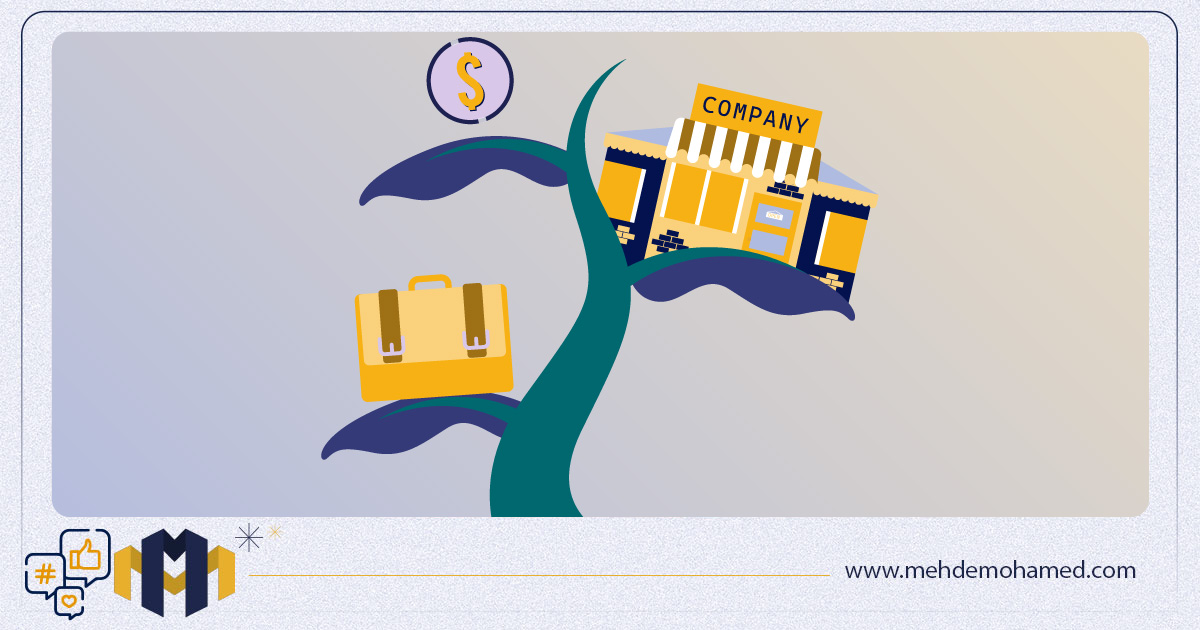Many people often confuse entrepreneurship with small businesses. While both play a vital role in supporting the economy and creating jobs, there are fundamental differences between them in terms of objectives, growth strategies, innovation, and market impact.
What Is Entrepreneurship?
Entrepreneurship is about creating innovative ideas or solutions to existing problems and transforming them into companies or products capable of rapid growth and expansion.
Characteristics of Entrepreneurship:
- Innovation: Offering a new product or service that disrupts the market.
- Rapid expansion: Aiming to reach regional or global markets within a short time.
- High risk: Since ideas are new, there is great potential for success, but also a high chance of failure.
- Venture capital funding: Entrepreneurs often rely on angel investors or venture capital funds.

Global Examples:
- Uber: Revolutionized the concept of transportation worldwide.
- Airbnb: Redefined the travel and accommodation industry.
Arab Examples:
- Careem: Started in Dubai as a local idea, grew regionally, and was later acquired by Uber.
- Talabat: A Kuwaiti food delivery platform that became one of the largest in the Middle East.
- HungerStation: A Saudi startup that evolved into one of the region’s leading food delivery apps.
What Are Small Businesses?
Small businesses are traditional ventures whose primary aim is to generate stable and sustainable income, often focusing on a local market.
Characteristics of Small Businesses:
- Traditional models: Providing products or services already available in the market.
- Limited growth: The goal is sustainability and profitability rather than rapid expansion.
- Lower risk: Usually funded through personal savings or small loans.
- Owner-managed: Typically run by the owner or with the help of family members and a small team.
Common Examples:
- Local restaurants or cafés.
- Grocery stores or clothing shops.
- Small repair workshops or electronics stores.
Arab Examples:
- Koshary Abou Tarek (Egypt): Started as a small local eatery and later became a well-known brand.
- Family-owned bakeries and cafés in Saudi Arabia: Stable and profitable community-based businesses.
- Traditional Moroccan shops: Selling handmade caftans, sweets, or crafts that reflect local culture.

Entrepreneurship vs. Small Businesses
| Aspect | Entrepreneurship | Small Businesses |
|---|---|---|
| Objective | Innovation and rapid expansion | Stability and long-term profitability |
| Nature of Work | New ideas or disruptive solutions | Traditional products or services |
| Growth | Fast, often regional or global | Limited and gradual |
| Funding | Venture capital or large investments | Personal savings or small loans |
| Risk | High | Relatively low |
| Impact | Market disruption and innovation | Meeting local community needs |
Which Is Better?
Neither is “better” in absolute terms. The choice depends on:
- Your ambitions: Do you want to create something innovative with a broad impact, or run a stable business that provides steady income?
- Market conditions: Some markets demand innovation, while others thrive on traditional small businesses.
- Risk tolerance: Entrepreneurs often accept short-term losses in exchange for long-term growth, while small business owners prefer stability.
How to Choose Your Path: Entrepreneur or Small Business Owner?
Many aspiring founders ask: which path should I take? The answer depends on your personality, resources, and goals.
Choose Entrepreneurship if you:
- Have an innovative idea or a unique solution to a problem.
- Aim for rapid growth and entry into regional or global markets.
- Are willing to take high risks and face potential failures.
- Are ready to engage with investors and secure external funding.
Choose a Small Business if you:
- Seek steady and continuous income for yourself and your family.
- Prefer working within a local market without the need for rapid expansion.
- Want to minimize risks and rely on personal or small-scale financing.
- Enjoy running your business yourself or with a small team.
Conclusion
- Entrepreneurship drives innovation and change, introducing new solutions and expanding rapidly into broader markets.
- Small businesses form the backbone of local economies, ensuring stability and providing essential goods and services.
While entrepreneurs focus on global impact and disruption, small business owners focus on serving their local communities. Both paths are equally valuable and complementary, contributing to building a balanced and sustainable economy.
Ultimately, success depends on understanding yourself, your vision, and your ability to plan your journey wisely.
